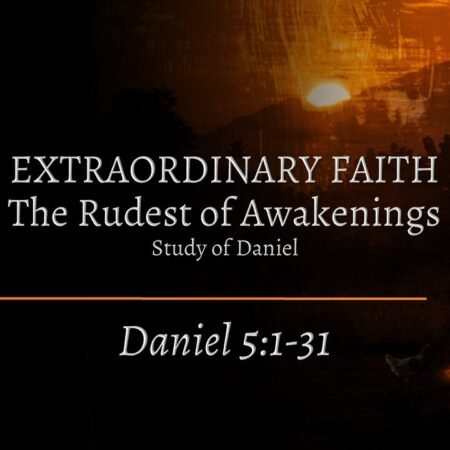Daniel 5:1-31
Isaiah 47:10-11
Wikepedia
“Sin was the god of the moon and planet in the Mesopotamian religions of Sumer, Akkad, Assyria, Babylonian and Aram, and was worshipped into the Islamic period in Harran, still represented as crescent in many Islamic flags of states.
The two chief seats of worship were Ur in the south of Mesopotamia and Harran in the north. A moon god by the same name was later worshipped in Saudi Arabia.”
The 19th century philosopher G.W.F. Hegel once said: “The only thing we learn from history is that we have learned nothing from history.”
Sinclair Ferguson in his commentary on Daniel makes this observation:
“With dramatic artistry, this record of Belshazzar’s last hours reserves to the very end of the chapter the information that his city must already have been under siege when he threw a great feast for a thousand of his lords, and drank wine in the presence of the thousands.” The ancient author Xenophon, who records the taking of Babylon, suggests that the city was magnificently well protected against a siege and had stores of food that would last for years. Belshazzar felt he could take pride in his security.”
Ferguson goes on to ask the question:
“What was the nature of Belshazzar’s sin that evoked this shift and final judgment of God?
It was a blatant transgression of his responsibilities as monarch whom God had privileged with high rank in life. This emerges not so much in the size of the feast as in the motive for it and in the manner of his behavior. It was a display of Belshazzar’s own inflated ego.
Belshazzar expressed his transgression in specific blasphemy. As he drank, the alcohol began to depress the restraining element in his mental powers. The cared monster of his heart was released. We can almost hear his boastful spirit calling out to some of the servants, doubtless to the horror of some present at the table, “GET THOSE JEWISH HOLY CUPS HERE, AND WE’LL DRINK A TOAST TO THOSE PARASITES TOO.”
What explanation is there for his action? After all, the Jews posed no threat to him or his empire. There is only one proper explanation. The Jews and their sacred vessels symbolized the presence and power of God. Belshazzar’s heart was a factory of rebellion against God. He knew exactly what these vessels were and from where they had come. He did not sin in IGNORANCE but WITH KNOWLEDGE.
Belshazzar sought to mock God, but the lesson of this chapter is “Do not be deceived, God is not mocked; for whatever a man sows, that he will also reap. For he who sows to the flesh will of the flesh reap corruption (Galatians 6:7-8). Belshazzar’s sinful heart caused spiritual blindness, spiritual deafness, and a pervasive sense of unreality.”
Pastor Richard Wurmbrand in his book; IN GOD’S UNDERGROUND’ wrote:
“There were two kinds of Christians; ‘those who sincerely believe in God and those who, just as sincerely, believe that they believe. You can tell them apart by their actions in decisive moments.’

